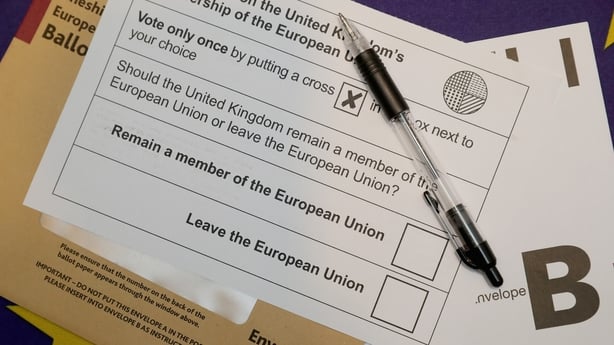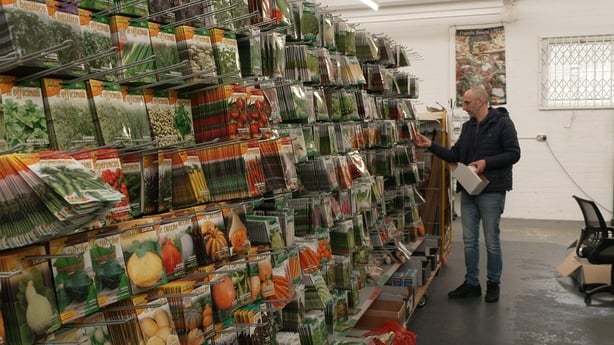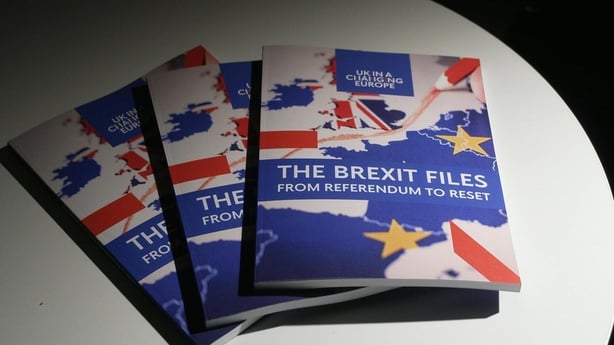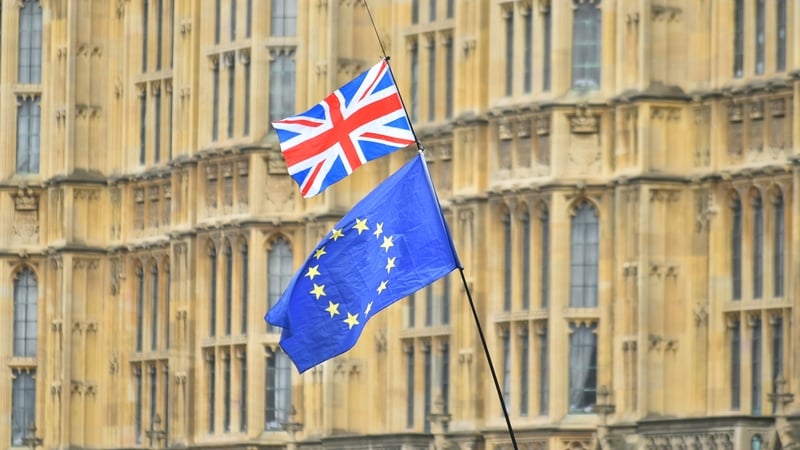At 11pm on 31 January 2020, the UK formally left the European Union, the only member state to ever leave the bloc.
It marked the beginning of the so-called “transition period” which would last 11 months, meaning the UK remained a part of the single market and customs until the end of the year.
However, during that time it was no longer a member of EU political institutions.
Five years on, the UK’s exit continues to impact households and businesses across the country.
It also still shapes politics in Britain, with the new Labour government committed to a “reset” in relations with the EU as part of its growth agenda.
We need your consent to load this rte-player contentWe use rte-player to manage extra content that can set cookies on your device and collect data about your activity. Please review their details and accept them to load the content.Manage Preferences
Feelings about Brexit
Polling date from YouGov to mark the five-year anniversary indicates that a majority of people in the UK, 55%, now believe that the decision to leave the European Union was wrong.
Just 30% say that it was the right decision.
Among younger cohorts who did not vote in the referendum, 18-24 year olds, 75% say it was the wrong decision, according to the poll.

According to the YouGov poll, 64% of Britons would support a closer relationship with the EU without rejoining any part of it.
However, there is little political appetite to revisit the referendum, or talk about rejoining the single market or customs union.
Instead the government has spoken about “resetting” relations with the EU.
Business impact
Some businesses have been impacted by Brexit more than others.
One sector that saw a significant disruption to its trade was the horticulture sector.
According to the Horticultural Trade Association, many of its members are still grappling with “soaring costs, significant delays, stock damage, and excessive bureaucracy”.
Paolo Arrigo is owner of Seeds of Italy, in north west London.

“I should definitely have more money in my bank account than I do now. I’ve had to spend loads of money on testing and bureaucracy… Britain no longer recognises the phytosanitary certificate, Britain no longer recognises the European organic certificate. That’s created loads and loads of different problems”, he explains.
Over the past year, he says that he has had to destroy £11,000 worth of tomato seed due to difficulties importing it.
He would welcome any changes that would ease trade barriers for his sector, which he feels is often overlooked.
Story of Brexit
This week the think-tank, UK in a Changing Europe published a major study on the story of Brexit, examining its origins, the negotiation process and future impacts.
Anand Menon, director of the think-tank, explains that Brexit was never going to be a one off event and would always require constant engagement with the EU.
In relation to the island of Ireland, the research found that the Northern Ireland border would become more pronounced as the UK diverged from the EU.
Such divergence does not have to result in numerous political crises but does have to be anticipated, the report said.
Asked about his assessment of Brexit, five years on from the UK’s exit, Anand Menon said that it was a difficult question because Brexit was always about “trade-offs”.

“On the one hand, we have control of our laws, we have control over immigration policy, and for some people that was something worth paying an economic cost for.
“I think one of the interesting things is that for a lot of leave voters who voted to see immigration fall, the unpleasant surprise is that net immigration has more than doubled since the referendum,” he explains.
He believes there is a paradox in the UK at the moment, “you talk to a journalist and they’ll say you stick Brexit in the title of an article, you’ll get loads more clicks but the two big parties, Labour and Conservatives, do not want to talk about Brexit”, he said, explaining that it is too politically divisive.
However, he notes that since the election of Donald Trump, the Liberal Democrats Party is now advocating much closer ties with Europe.
Calls for a return to the Customs Union
Earlier this month, Liberal Democrats leader Ed Davey called on the government to seek a new customs union with the EU.
He argued that the new President of the United States was not “a reliable partner on security, defence or the economy”.
Calum Miller, Liberal Democrats spokesperson on Foreign Affairs, explains that committing to a new customs union would be create a “greater sense of urgency and purpose behind the talks and dialogue that it has committed to. For our money the progress has been far too slow on matters that should be quite easy to agree to like a European youth mobility scheme”.
Mr Miller believes that agreeing to such a scheme would serve to build trust with the EU and show that the UK is serious about resetting the relationship.
Within Labour circles, however, there seems to be no appetite for a full rejoining of the customs union.
Nevertheless, the desire to reset relations is very much front and centre of the government’s agenda.
During her growth speech this week, Chancellor of the Exchequer Rachel Reeves said that it was in the “national interest” to improve relations with the EU, “our nearest and our largest trading partner”.




